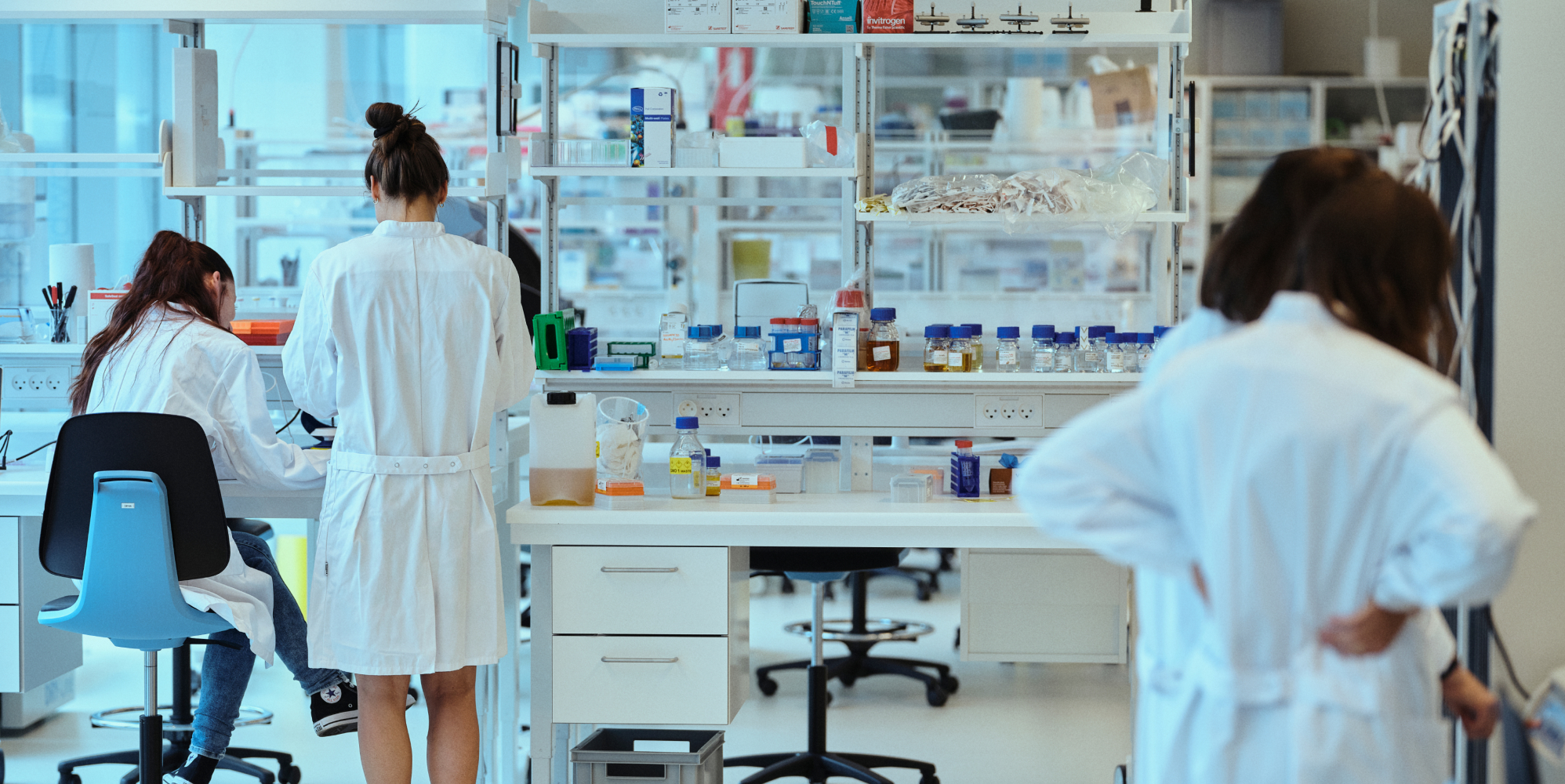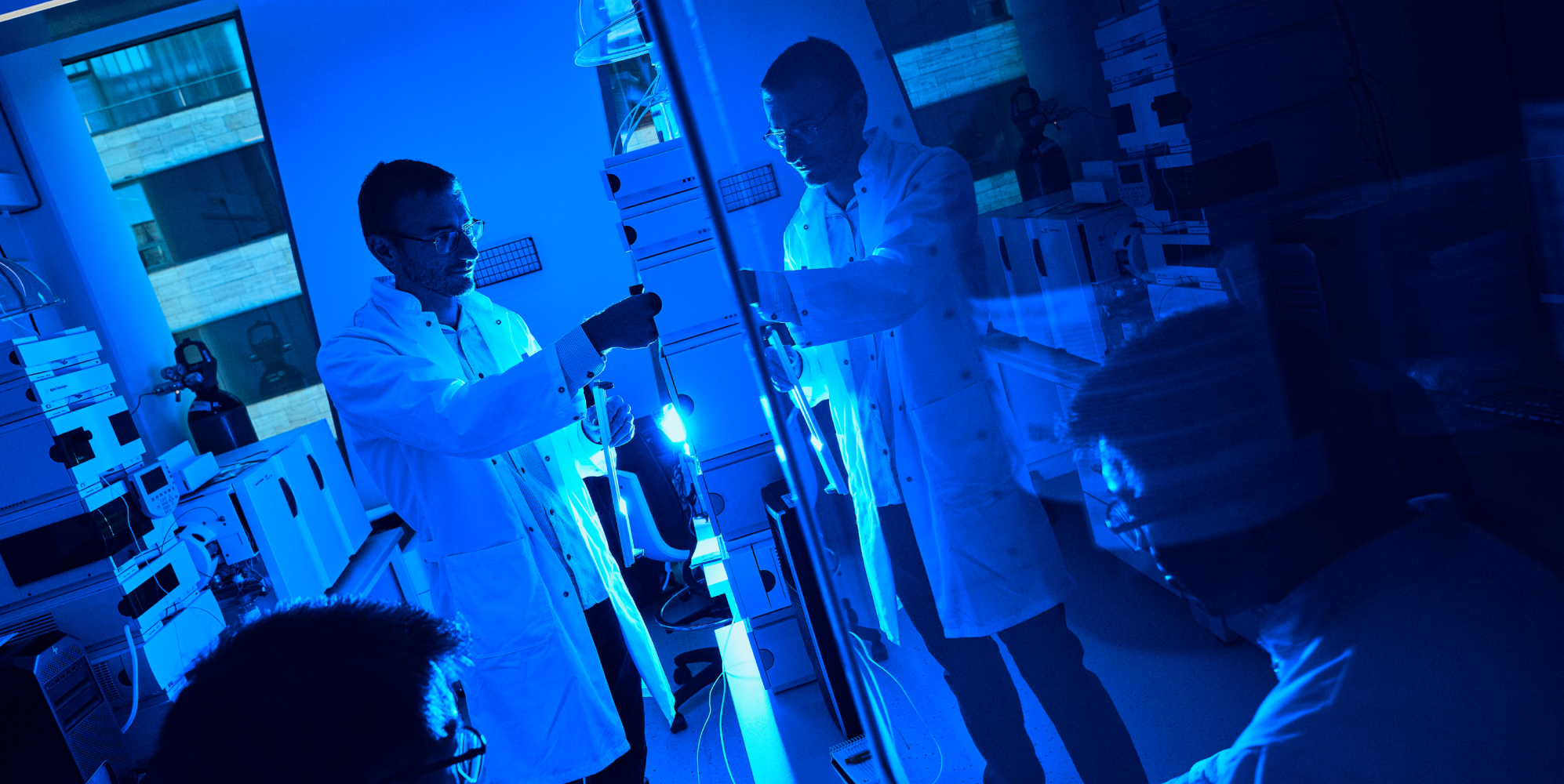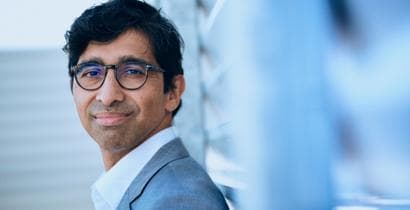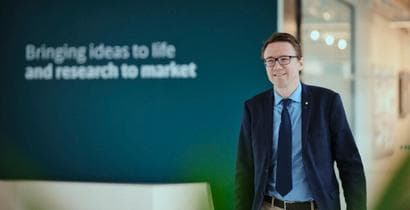
Danish research institutions and BioInnovation Institute are entering a close collaboration to bring forward research projects from around the world that meet the needs of patients and society but may not be able to attract investments.
Not just yet at least.
3 years of incubation at BioInnovation Institute and a grant of EUR 2.4M (DKK 18M). This is the offering to aspiring entrepreneurs after BII entered the very early stages of life science commercialization with substantial funding and business development in the program Faculty. Top tier researchers are selected to lead a research group at BioInnovation Institute through a co-Principal Investigator in areas that can impact some of the major challenges in sustainability and human health.
“As an incubator, we usually look for investable science, so we can fast track great solutions to the market. But the investment space does not always represent the societal needs. In the Faculty program, our objective is to identify needs, find the great science in the life science space, and help nurture the investors’ interest during the three years of incubation. At BII, we have substantial funding and a long-time horizon, which allows us to do so and take the risks that most investors would not,” explains Markus Herrgard, Chief Technical Officer of BioInnovation Institute.
“At the Technical University of Denmark, we want to make technology for people. Our research should be used in society, and BII Faculty is an initiative that can ease the translation between research and viable solutions. We believe it can develop one’s mindset and benefit our researchers to be in the interdisciplinary environment at BioInnovation Institute, surrounded by people that work in different fields of research. We expect to see stronger scientists, stronger innovators, and stronger start-ups come from this unique collaboration.” Marianne Thellersen, Senior Vice President, Innovation and Entrepreneurship The Technical University of Denmark
Expansion to 15-20 global projects
BII has sourced the first Faculty projects in Denmark but will expand with a global search and expects to have between 15-20 projects in house by 2023. The inspiration comes from Wyss Institute at Harvard University, and the purpose is to bring research on the translational path at a much earlier stage.
“To bring scientists and business developers together in an environment full of entrepreneurs and start-ups will foster a more focused approach. Having spent time in academia and industry, I have experienced the shift from the environment at a university to a business myself. It takes time to adjust one’s mindset from focusing on scientific results and publications to focusing on bringing products to market,” says Markus Herrgard, who previously led a research group at the Novo Nordisk Foundation Center for Biosustainability at the Technical Univerity of Denmark.
Explained: Proof of concept
Proof of Concept is the initial indication that shows that the scientific hypothesis or idea is feasible.

Pre-negotiating licensing agreements
The Faculty program is one of many initiatives built on a close collaboration with Danish research institutions that are entering partnership agreements with BioInnovation Institute to ease the translational path for researchers.
University of Copenhagen is one of the institutions, and Trine Winterø, Vice-Dean for Innovation and External Relations at the Faculty of Health and Medical Sciences, expresses how the university has had and still has an increasing focus on translational research to bring the excellent science beyond the academic environment.
“We see a substantial deal flow from University of Copenhagen to BII’s programs already, and a partnership agreement will allow researchers to explore the translational possibilities of their science even prior to establishing proof of concept,” says Trine Winterø.
The Technical University of Denmark has also partnered with BII, and Markus Herrgard sees that as a vote of confidence and as general increasing interest in translational research.
“BII can accelerate and further develop the excellent basic research that comes out of the institutions, and our partnership agreements will be a helping hand for the academic founders. There are many things to deal with when building a company, and negotiating a licensing agreement with the research institute is one of them. We believe it will ease the process of spinning out companies that BII has pre-negotiated the IP in broad terms,” explains Markus Herrgard.
Trine Winterø expects that the collaboration and the Faculty program could encourage more researchers to bring their basic research into a commercial setting.
“We need interactions with society and industry for our excellent science to reach the clinic and patients,” she says.


